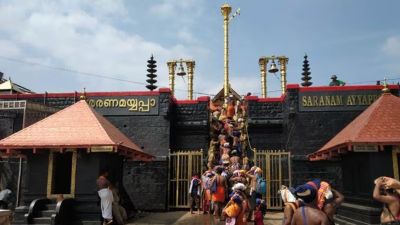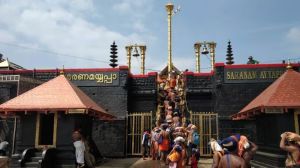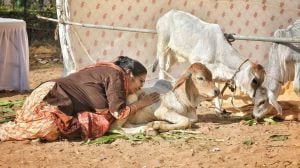145;Govt may try for Anderson extradition146;
The Government may try again for the extradition of former chairman of Union Carbide Warren Anderson from the US in connection with the 1984...

The Government may try again for the extradition of former chairman of Union Carbide Warren Anderson from the US in connection with the 1984 Bhopal gas tragedy, and seek to enhance the compensation as the number of those affected has gone up five-fold, Minister of State in the PMO Prithviraj Chavan said. 8216;8216;If appeal against the possibility of a second trial opens, I am sure the government will try whether he can be extradited again,8221; Chavan told CNBC8217;s Tonight at 10 show last night.
Regarding remarks by the US court of appeal that the case was pursuable, and the demand by NGOs that Government of India should join the issue, he said he would not be able to say anything about the proposed action by the government. 8216;8216;Whatever legal remedies that government can take will be tried,8221; Chavan said. Chavan said the Indian government has no leverage as such on any American corporation to force them pay increased compensation.
He said attempts would be made for seeking enhancement of initial 470 million payment received from Union Carbide in 1989 as the number of people dead and affected had gone up five-old.
While the government continues its efforts, Bhopal8217;s Municipal staff painstakingly scrubs the surface for re-carpeting a single-lane road which circles the outer boundary wall of the shut plant as the world descends here. Some foreign mediamen plead with the police at the gate to allow them a peep inside the 66 acre campus, where strewn around are 8,000 tonnes of toxic waste.
Just across the road, in the slum cluster of JP Nagar, dwellers continue with their routine struggle. 8216;8216;We have struggled for 20 years and will continue to do so for the next 20 years. These anniversaries will hardly make any difference,8217;8217; shouts Farida, daughter of Hamid, who died five years back after struggling with cancer caused by inhalation of methyl iso cyanate that leaked from the plant. Even she complains of severe breathing problems.
Barely a kilometer away, a gas victims8217; widow Chandabai dishes out a funny rationale behind her son8217;s name, Ram Bharosey. 8216;8216;He was born on December 6, 1984, three days after the tragedy. Everybody had left hope of a safe delivery with me struggling for survival. But he was born,8217;8217; she says.
Twenty years later today, Ram Bharosey says: 8216;8216;I suffer blackouts while reading. I can8217;t play continuously for more than half an hour. I pant for breath.8217;8217; His father Madhav Singh died six years after the leak, due to lung failure.
Thousands of survivors seem rattled by an uncertain future. 8216;8216;My brother died in 1996 and my mother four years later due to lung failure. I too suffer from breathing problem and my eyesight is all but normal,8217;8217; says Abdul Jabbar, who is now running an NGO, Bhopal Gas Peedit Mahilya Udog Sangathan, fighting for rights of the affected people.
- 01
- 02
- 03
- 04
- 05































